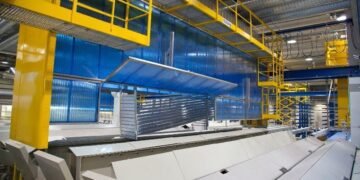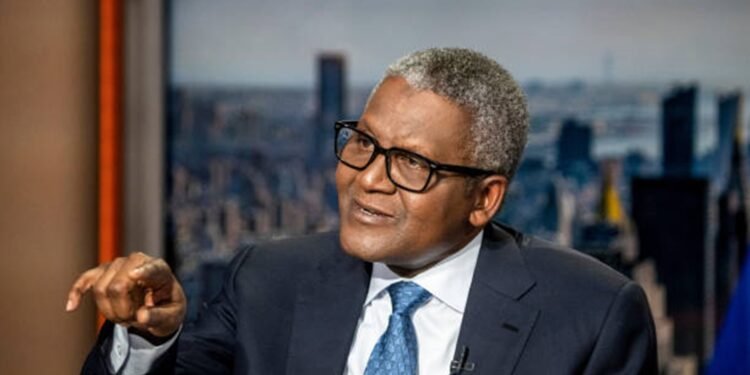Aliko Dangote, President/Chief Executive of Dangote Industries Limited has said that while Africa Africa produces about seven million barrels of crude oil per day, only 40 percent of its 4.3 million barrels daily consumption of refined products is processed locally.
This he says is in stark contrast to Europe and Asia, which refine over 95 percent of their consumption.
Also read; Oando Plc to raise ₦500 billion additional capital, issue new shares
He went further to say that Africa loses an estimated $90 billion annually to the importation of refined petroleum products due to its inadequate domestic refining capacity.
Dangote was speaking at the West African Refined Fuel Conference in Abuja on Tuesday, a conference, jointly organised by the Nigerian Midstream and Downstream Petroleum Regulatory Authority (NMDPRA) and S&P Global Commodity Insights, brought together regulators, industry leaders, and policymakers to chart a sustainable future for West Africa’s petroleum market.
He warned that the continent’s reliance on fuel imports not only bleeds its economy but also exposes it to the influx of cheap, often substandard petroleum products rejected in Europe and North America.
“So, while we produce plenty of crude, we still import over 120 million tonnes of refined petroleum products each year, effectively exporting jobs and importing poverty into our continent. That’s a $90 billion market opportunity we’re handing over annually,” Dangote said.
Africa’s richest man stressed that it is economically illogical for Africa to export crude and re-import refined products it is capable of producing, adding that this practice deprives the continent of jobs, investment, and industrial growth.
Dangote went further to say that his refinery now imports between 9 and 10 million barrels of crude oil monthly from the United States and other countries due to challenges with sourcing Nigerian crude.
He described international oil companies (IOCs) as the most difficult part of the refinery’s journey, particularly in securing reliable crude feedstock.
“At the project inception, it was reasonable to assume that in a country producing about 2 million barrels per day, securing crude would be the least of our worries. But we were wrong,” he said.
According to him, instead of buying crude directly from local producers under competitive terms, the refinery has been forced to purchase from international trading firms who buy Nigerian crude and resell at steep premiums.
“As we speak today, we buy about 9 to 10 million barrels of crude monthly from the United States and other countries,” Dangote revealed.
Going further, Dangote also pointed to major obstacles in crude transportation, citing persistent lifting schedule changes by upstream operators and excessive port and regulatory charges.
“Skyrocketing port charges made up about 40 percent of the total freight cost, meaning it cost two-thirds as much as chartering a vessel with the crew, insurance, and fuel included,” he said.
“In terms of port charges, it is currently more expensive to load a domestic cargo of petroleum products from Dangote refinery, as customers pay both at the loading point and also at the discharge point,” he explained.
“In contrast, competitors loading from Lome only pay at the port of discharge. This is simply unfair and unsustainable,” he said.
Nnamdi Maduakor is a Writer, Investor and Entrepreneur






















































